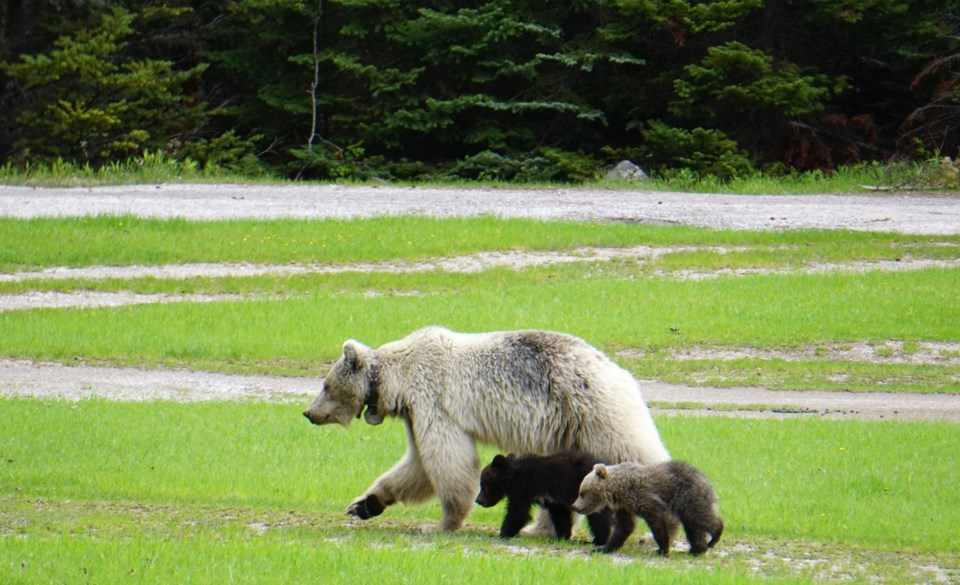FIELD, BRITISH COLUMBIA, CANADA — Parks Canada staff who spent hundreds of hours tracking a rare white grizzly bear known as Nakoda had recently celebrated her emergence from hibernation with two new cubs in British Columbia's Yoho National Park, said parks wildlife management specialist Saudi Stevens.
Now all three animals are dead, after two separate crashes on the same day on the Trans-Canada Highway in southeast British Columbia.
Parks Canada announced Nakoda's death on Monday, four days after the crashes that ultimately claimed her life and those of her cubs.
"It's actually devastated the team that was so deeply invested in really trying to prevent this outcome," Stevens told a news briefing.
She called for better highway awareness in parks.
"So many staff are actually working hard to make roads safer for wildlife (and) we really want to emphasize to visitors the importance of not stopping and lingering to view wildlife, to drive cautiously and to obey the speed limits."
Stevens said that on Thursday morning, Nakoda's two cubs were struck by a vehicle and killed on the highway.
About 12 hours later, Nakoda was struck, too, between the Lake O'Hara access road and Wapta Lake.
Parks Canada said in a statement that wildlife management staff had been repairing fencing along the road when the adult bear, designated GB178, was startled by a train and ran in front of two vehicles.
One vehicle was able to swerve and avoid the bear, but the driver of the second vehicle was unable to react in time and struck her, the statement said.
Stevens said staff were "optimistic" the bear would survive as they watched her climb over the fence and head toward the forest with "no apparent injuries other than a limp."
But she said the animal was confirmed dead on Saturday when a "mortality signal" was sent from the bear’s GPS tracking collar.
Stevens said the deaths were "devastating" for the team, who had been tracking Nakoda for about two years.
"Since 2022, our Parks Canada wildlife management team has actually spent a significant amount of time, and I mean hundreds upon hundreds of hours, managing Bear 178," she said.
"Just weeks ago, everyone in our office were actually celebrating her emergence from the den with two new cubs."
She said such incidents can be an "unfortunate reality" when bears become habituated to people.
"If it was internal injuries (that killed the bear) our vet said there really is no veterinary care that would have been able to prevent her death," Stevens said.
"Grizzly bears are considered a species of special concern. They're a very slow-reproducing animal, so every female grizzly bear that's killed in the park is a significant loss."
Yoho National Park is about 60 kilometres northwest of Banff, Alta.
— By Brieanna Charlebois in Vancouver
This report by The Canadian Press was first published June 10, 2024.
The Canadian Press


